
Paul Roundy
Professor of Atmospheric and Environmental Sciences, University at Albany, State University of New York
Dr. Roundy studies waves of the tropical atmosphere and ocean and how these waves interact with one another and with atmospheric moist deep convection to modulate global weather and climate. Areas of emphasis include analysis of observations to study modulation of tropical cyclogenesis and the El Nino/Southern Oscillation (ENSO) by convectively coupled waves and intraseasonal oscillations.
Less ![]()

Paul Roundy
Dr. Roundy studies waves of the tropical atmosphere and ocean and how these waves interact with one another and with atmospheric moist deep convection to modulate global weather and climate. Areas of emphasis include analysis of observations to study modulation of tropical cyclogenesis and the El Nino/Southern Oscillation (ENSO) by convectively coupled waves and intraseasonal oscillations.
Less ![]()
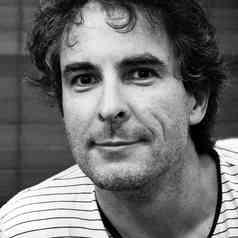
Paul Sendziuk
Associate Professor in History, University of Adelaide
Paul Sendziuk is an Associate Professor in the Department of Historical and Classical Studies at the University of Adelaide, with expertise in the histories of immigration, labour, disease and public health. He is the author of 'Learning to Trust: Australian Responses to AIDS' (UNSW Press, 2003), and co-author of 'A History of South Australia' (Cambridge University Press, 2018) and 'In the Eye of the Storm: Volunteers and Australia's Response to the HIV/AIDS Crisis (UNSW Press, 2021).
Less ![]()

Paul Simmonds
Senior Teaching Fellow, Strategy & International Business, Warwick Business School, University of Warwick
I embarked on an academic career in 2009 after completing a PhD in Strategic Management at Warwick Business School. A Fellow of the Association of Chartered Certified Accountants and a Member of the Chartered Management Institute, I also possess an MBA (Distinction) from Warwick Business School and an MSc in Finance from Leicester University.
Before completing my PhD, I enjoyed a 30-year career in industry, primarily in finance, with a number of leading UK public companies including RMC Group plc, BTR Group plc and Britax International plc where I specialised in international M&A including the successful acquisition and integration of automotive components and aircraft interiors companies in the UK, Germany, America and South Korea.
Less ![]()
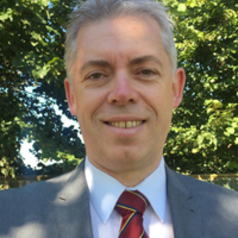
Paul Smith2
Principal Lecturer, Cardiff Metropolitan University
Dr Paul M. Smith is an exercise physiologist within the School of Sport and Health Sciences at Cardiff Metropolitan University. He is a Fellow of the British Association of Sport and Exercise Sciences and the Higher Education Academy. His main research specialism focuses upon the development and applications of exercise tests associated with upper body exercise, with particular emphases on arm crank ergometry and handcycling.
Paul has worked within the sphere of disability sport and physical activity for more than 20 years and has considerable knowledge of the Para sport of handcycling. He has published extensively within a broad area of disability sport and, as well as supporting disabled athletes in preparation for competition he has played an integral role during high-profile, ultra endurance sporting challenges, including two successful Races Across America and a World record solo ride by a double amputee handcyclist from John O'Groats to Land's End.
Paul completed his PhD by published works, while he worked within the Chatham Maritime School of Sciences at the University of Greenwich. Within current projects he attempts to bring experts from different fields together to create multi- and interdisciplinary research proposals. More recently, Paul has turned his attention to issues of inclusion and accessibility of secondary and higher education opportunities for individuals with physical needs.
Less ![]()
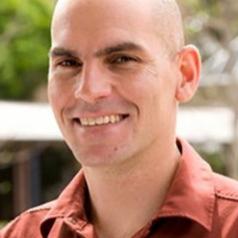
Paul Spence
Associate professor of oceanography, University of Tasmania
Paul specialises in ocean climate modelling. He uses geophysical fluid dynamics to understand the ocean’s role in global climate.
Less ![]()
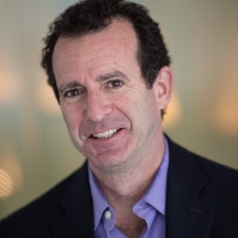
Paul Spiegel
Director of the Center for Humanitarian Health, Johns Hopkins University
Dr. Spiegel, a Canadian physician by training, is internationally recognized for his research on responding to humanitarian emergencies, with a focus on refugee crises. Paul is the Director of the Johns Hopkins Center for Humanitarian Health and Professor of the Practice in the Department of International Health at the Johns Hopkins Bloomberg School of Public Health (JHSPH).
Before JHSPH, Dr. Spiegel was Deputy Director and Chief of Public Health at the United Nations High Commissioner for Refugees.
He previously worked as a Medical Epidemiologist in the International Emergency and Refugee Health Branch at the Centers for Disease Control and Prevention and as a Medical Coordinator with Médecins Sans Frontières and Médecins du Monde in refugee emergencies, as well as a consultant for numerous international organizations.
Dr. Spiegel was the first Chair of the Funding Committee for Research for Health in Humanitarian Crises (2013-2018). Dr. Spiegel has published over 130 peer-reviewed articles on humanitarian health and migration. He has served as a Commissioner on the Lancet Commission for Migration and Health and the Lancet Commission on Syria. He is currently co-chair of Lancet Migration and co-director of the EQUAL consortium.
Less ![]()

Paul Stillman
Assistant Professor of Marketing, San Diego State University
My research examines how cognition and motivation interact to produce behavior. In particular, by investigating the cognitive underpinnings of goal-pursuit, I hope to advance understanding of self-regulation - how people manage complex goal arrays. In doing so, I hope to provide insight as to why people behave in ways that are counter to their goals, as well as identify ways to boost functional self-regulation.
Less ![]()
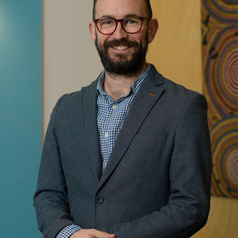
Paul Strutt
Senior Lecturer in Psychology, Western Sydney University
Dr Paul Strutt is a Clinical Neuropsychologist and Senior Lecturer in the School of Psychology at Western Sydney University, Australia. His clinical and research interests span topics including ADHD, traumatic brain injury, including repetitive head injury, and investigation of modifiable lifestyle risk factors for cognitive decline and dementia.
Less ![]()

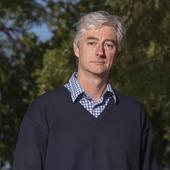
Paul Tregoning
Head, Climate and Ocean Geosciences, Research School of Earth Sciences, Australian National University
Less ![]()

Paul Watson
Paul Watson is Professor of Computer Science and Director of the Digital Institute. He is PI of the EPSRC Centre for Doctoral Training in Cloud Computing for Big Data and also directed the £12M RCUK-funded Digital Economy Hub on Social Inclusion through the Digital Economy. He graduated in 1983 with a BSc in Computer Engineering from Manchester University, followed by a PhD on parallel graph reduction in 1986. In the 80s, as a Lecturer at Manchester University, he was a designer of the Alvey Flagship and Esprit EDS systems. From 1990-5 he worked for ICL as a system designer of the Goldrush MegaServer parallel database server, which was released as a product in 1994.
In August 1995 he moved to Newcastle University, where he has been an investigator on research projects worth over £40M. His research interest is in scalable information management with a current focus on Cloud Computing. He sits on the board of Dynamo North East, an industry-led organisation created to grow the IT economy of the region. Professor Watson is a Chartered Engineer, a Fellow of the British Computer Society, and a member of the UK Computing Research Committee. He received the 2014 Jim Gray eScience Award.
Less ![]()
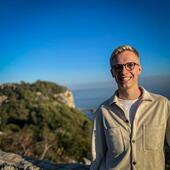
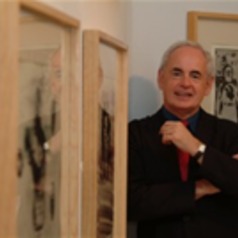
Paul Whiteley
Professor, Department of Government, University of Essex
My research interests involve examining the nature & significance of political participation, particularly electoral participation, & also in understanding the causes & effects of public opinion on politics.
Less ![]()

Paul Wigley
Professor in Animal Microbial Ecosystems, Bristol Veterinary School, University of Bristol
I am Professor of Avian Infection and Immunity. My research interests are in the infection biology of bacterial infections in the chicken both relating to foodborne infection (Salmonella and Campylobacter) and animal health from the perspective of both the pathogen and host response.
Less ![]()

Paul Wignall
Professor of Palaeoenvironments, University of Leeds
Professor Paul Wignall lectures in palaeontology and sedimentology. He obtained his first degree at the University of Oxford and his PhD at the University of Birmingham under the supervision of Professor Tony Hallam and has been a lecturer at Leeds since 1989.
He has collaborated with numerous colleagues both nationally and internationally, especially at the China University of Geosciences (Wuhan), during his wide ranging field expeditions. Wignall has published over 240 research articles and 4 books,including: The Worst of Times" How Life on Earth Survived 80 Million Years of Extinctions, published by Princeton University Press and enjoys investigating a very broad spectrum of topics that range from flood basalt eruptions to palaeoecology.
He has supervised nearly 40 PhD students and received several awards including the Jean-Baptiste Lamarck Model of the EGU and the Wolfson Merit Award from the Royal Society. He has served on the REF panel, been editor of several geological journals, been president of several geological societies and appeared in over a dozen science documentaries.
Less ![]()
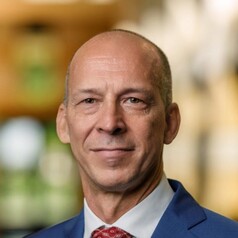
Paul Winters
Professor of Global Affairs, University of Notre Dame
Paul Winters is associate dean for academic affairs and the Keough-Hesburgh Professor of Global Affairs in the Keough School of Global Affairs at the University of Notre Dame. Winters’s research and teaching focus on rural poverty and food insecurity and the evaluation of policies and programs designed to address these issues. He has published numerous journal articles and working papers in the areas of rural poverty and food insecurity, rural development, small-scale agriculture, inclusive and sustainable food systems, agricultural data, impact evaluation, migration and social protection programs. He holds a PhD in agricultural and resource economics from the University of California at Berkeley, an MA in economics from the University of California at San Diego and a BA in non-Western studies from the University of San Diego.
Less ![]()
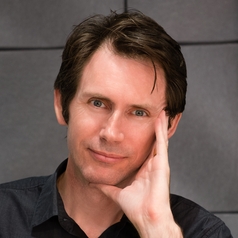
Paul X. McCarthy
Paul Xavier McCarthy is an author, speaker and observer of technology and its global impacts. His new book ''Online Gravity'' is about how the web is transforming the way we work, learn and play is published by Simon and Schuster in New York, London and Sydney.
McCarthy is CEO of Online Gravity Consulting a specialist corporate innovation and technology strategy advisory firm. He is also adjunct Professor at the University of New South Wales School of Computer Science and Engineering.
Previously, he was Executive Director of Strategy and Innovation at Sirca—a global technology company based in Sydney that provides online services for data-intensive researchers and analysts in financial services and other domains. McCarthy is also co-founder of several innovative enterprises for IBM, NSW Government and CSIRO—Australia’s National Science Agency and the inventors of Wi-Fi.
McCarthy received his Bachelor of Science in Computer Science and Graduate DipArts in Fine Arts both from the University of Sydney, where he won the Ian Langham Memorial Prize in History and Philosophy of Science, his Master of Design in Digital Media from the University of Western Sydney and his MBA from Macquarie University, where he won the MGSM Award for Advertising and Marketing.
Less ![]()
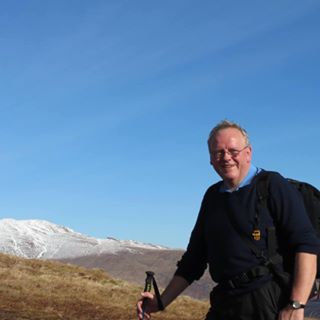
Paul Younger
I’ve enjoyed a varied career ranging from early days in pure science (principally geology), through water resources and environmental engineering (especially groundwater engineering), on through mining environmental engineering to energy engineering. There are several persistent threads running through all of these experiences, mainly to do with quantitative geoscience, numerical modelling of fluid flow and reactive mass transfer, and the translation of high-level conceptual principles into hands-on engineering solutions, invariably for purposes which I believe are socially and environmentally benign. I owe my formal education to two universities: Newcastle University in the UK (BSc and PhD), and Oklahoma State University in the USA (MS), where I spent two very happy years as a Harkness Fellow (1984-86), taking advantage of burgeoning activities in the then-National Centre for Groundwater Research and the EPA’s RSKERL Lab in Ada.
My education was extended – and continues to be – by industrial experience, with Yorkshire Water, the National Rivers Authority, Centro Yunta (La Paz, Bolivia), NIREX, Northumbrian Water, Project Dewatering Ltd, Cluff Geothermal Ltd, Five-Quarter Energy Ltd and various consultancy missions worldwide. I spent just under 20 years at Newcastle University, where I: taught water and environmental engineering; founded and led the HERO research group (which won the University the Queen’s Anniversary Prize for the first time in 2005); established what is now the Sir Joseph Swan Centre for Energy Research; founded and Directed the Newcastle Institute for Research on Sustainability; served as the University’s Public Orator; and was the UK's first-ever Pro-Vice-Chancellor for Engagement. I joined Glasgow University in August 2012.
I currently serve as Chair of the Global Scientific Committee of the Plant Earth Institute, an intermational NGO (of which I am also a Trustee) which aims to promote South-South collaboration in science-based projects that further the cause of 'scientific independence for Africa'. I am also a Trustee of Arran Community Energy, which is striving to implement renewables in a manner compatible with the important tourist industry of that beautiful Scottish island.
My current research is entirely focused in the energy sector, and besides engaging with the broad challenges of keeping the lights on and homes and businesses warm whilst decarbonising our energy systems, I focus specifically on three areas in which my particular skills and experience can be put to best use: geothermal energy, underground coal gasification tightly coupled to carbon capture and storage, and hydropower.
Less ![]()
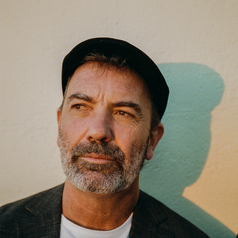
Paul (Mac) McDermott
Lecturer in Contemporary Music, Sydney Conservatorium of Music, University of Sydney, University of Sydney
Dr Paul (Mac) McDermott teaches into the Bachelor of Music Studies (Contemporary Music Practice) program. In 2021, he was awarded a Doctor of Musical Arts which focussed on creating a unique compositional voice fusing Electronic Dance Music traditions with experimental practice. His research interest focuses on Australian dance music history, building on his practice history as a participant in the EDM scene. As a solo artist, he has been awarded a Best Dance Release ARIA for “Just the Thing” (2021), and as half of rave pioneers Itch-E & Scratch-E, he was awarded the same for their track “Sweetness & Light” (1995). He has collaborated with silverchair frontman Daniel Johns onThe Dissociatives(2004). As one half of Stereogamous he has been commissioned to remix artists including Kylie Minogue, Sia, George Michael, and Rufus du Sol. His most recent work,The Rise & Fall of St. Georgehas been performed at Melbourne’s Hamer Hall (2020) and the Sydney Festival (2021).
Less ![]()
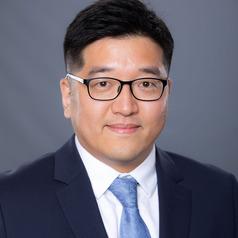
Paul (Seung Yup) Lee
Assistant Professor of Biomedical Engineering, Kennesaw State University
Dr. Paul (Seung Yup) Lee is an Assistant Professor of Biomedical Engineering in the Department of Electrical and Computer Engineering at Kennesaw State University. At KSU, he is leading Translational Biomedical Optical Laboratory that aims to develop the next generation of optical imaging and spectroscopic technologies for clinical diagnostics and health monitoring.
Dr. Lee received his B.S. degree in Electrical Engineering from Seoul National University (SNU) in 2004, his M.S. degree in Biomedical Engineering from SNU, in 2006, and a Ph.D. degree in Biomedical Engineering from the University of Michigan (UM), Ann Arbor in 2015. From 2006 to 2010, he was a research engineer in Korea Electrotechnology Research Institutes. From 2016 to 2021, he was a postdoctoral fellow in the Wallace H. Coulter Department of Biomedical Engineering at Georgia Tech (GT) and Emory University.
He has received several fellowships and awards including American Heart Association Postdoctoral Fellowship (2019), Best Scientific Poster Award at the Southeastern Pediatric Conference (2018), Best Oral Presentation Award at the GT Postdoc Symposium (2018), Petit Scholar Mentorship (2017) at GT and Rackham Centennial Fellowship at the UM (2013).
Less ![]()
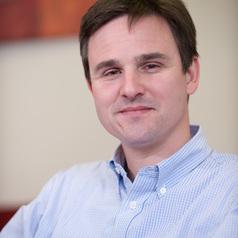
Paul B. Fitzgerald
Director School of Medicine and Psychology, Australian National University
Professor Paul Fitzgerald is the Head of the School of Medicine and Psychology at the Australian National University. He is an academic psychiatrist with a MBBS degree, Masters of Psychological Medicine and research PhD from Monash University. He has conducted an extensive range of experimental studies and clinical trials, focused on the development of novel treatments options for patients with depression, schizophrenia, obsessive compulsive disorder, PTSD, autism and Alzheimer’s disease with a special interest in repetitive transcranial magnetic stimulation (rTMS). He has had continual NHMRC grant support for 20 years and over $10 million in research support in the last 5 years. He has published several books, over 500 journal articles and been cited over 25,000 times. He has established multiple clinical rTMS services, founded several device and clinical service companies and led a national application to MSAC in the Federal Department of Health which resulted, in 2021, in Medicare funding ($280 million in year 1) for rTMS therapy for patients with depression.
Less ![]()

Paul D. Robinson
Conjoint Professor in Respiratory and Sleep Medicine, Child Health Research Centre, The University of Queensland
Conjoint Professor Paul Robinson is the Deputy Director of the Children's Health Environment Program within the Child Health Research Centre (CHRC), and Senior Staff Specialist in Respiratory and Sleep Medicine at the Queensland Children's Hospital. His research program performs translational research outlining the role of peripheral airway function tests in early lung disease detection and ongoing monitoring of established disease.
He has led the development and standardisation of novel measures of lung function across the entire age range from infancy onwards, facilitating the development of commercial equipment available for widespread use. His research focuses on defining the clinical utility of two specific peripheral airway function tests (Multiple breath washout, MBW, and oscillometry) in important obstructive lung diseases (e.g., asthma, cystic fibrosis, and post bone marrow transplant pulmonary graft vs host disease) and in understanding the impacts of environmental exposures. Structure-function relationships have been explored using state-of-the-art imaging techniques, with the aim of also developing new strategies to reduce any radiation exposure associated with these to advance incorporation into clinical care (e.g., ultra-low dose CT).
These novel lung function tools are used not only in the hospital setting but also in the school and home setting, enabling the successful development of a parent-supervised remote monitoring strategy for asthma which has been shown to reflect clinically meaningful outcomes missed by conventional approaches. In collaboration with industry, this strategy is now being employed in a series of research projects.
Involvement in longitudinal birth cohorts has outlined the early lung function trajectories in health, and the identification of risk factors affecting normal lung development and contributing to the early development of asthma. Studies investigating environmental health have highlighted the adverse effects of ultrafine particle air pollution.
Professor Robinson's standing as an international expert, both in terms of clinical and research experience, has led to broader leadership roles across national and international levels.
Less ![]()


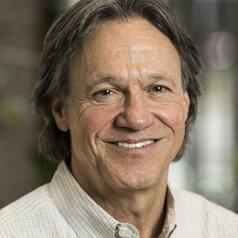
Paul F. Jacques
Professor of Nutrition Science and Policy, Tufts University
Paul F. Jacques is Senior Scientist and Team Leader of the Nutritional Epidemiology Team at the HNRCA. His research interests include B vitamins, whole grains, flavonoids, hydration, diet patterns and diet quality, and their relation to maintenance of metabolic, cognitive and physical function with aging. Jacques has published more than 300 peer-reviewed manuscripts of original research over his career and has made many important discoveries in the field of nutritional epidemiology.
Less ![]()
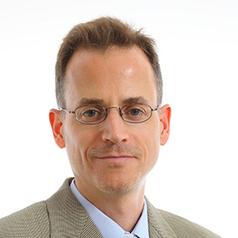
Paul G. Harris
Chair Professor of Global and Environmental Studies, The Education University of Hong Kong
PAUL G. HARRIS is the Chair Professor of Global and Environmental Studies at the Education University of Hong Kong and a Senior Research Fellow in the Earth System Governance global research alliance. His research explores climate governance, global environmental politics, ecological justice and international ethics.
Professor Harris is author/editor of Pathologies of Climate Governance (Cambridge University Press), Global Ethics and Climate Change (Edinburgh University Press), Climate Change and Ocean Governance (Cambridge University Press), What’s Wrong with Climate Politics and How to Fix It (Polity), the Routledge Handbook of Global Environmental Politics (Routledge) and 20 other books.
For more information, visit the following website: www.paulgharris.net
Less ![]()

Paul G. Oliver
Lecturer in Digital Innovation and Entrepreneurship, Edinburgh Napier University
I am a senior research associate, lecturer, author, and musician. I teach Digital Innovation and Entrepreneurship at Edinburgh Napier University. My research interests include digital transformation, entrepreneurial learning, and data governance in the contexts of both smart cities and the creative industries.
I have degrees in Contemporary Popular Music and in Business & Management, and also hold a PhD in Creative Entrepreneurship. In 2009, I helped to set up one of the first creative industries management provisions in the UK at the University of Bolton. Since then I have taught on the BA (Hons) in Music Business of the University of the Highlands & Islands and led the MA in Music Industry Management programme at the University of West London.
As a musician, I self-release my own songs performing under the pseudonym Paul Go. I am also the founder of Ganbei Records, and have more than 15 years' experience working as a music consultant and artist manager.
Less ![]()
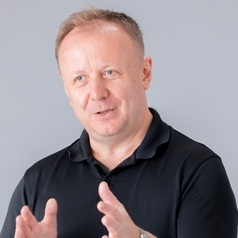
Paul M. Bacon
Professor, Graduate School of Asia-Pacific Studies, Waseda University
Field of Specialization: Inter-regionalism (Europe and Asia), Comparative Regionalism (Europe and Asia), Human Rights Promotion and Protection
Research Theme: Securitization, Norm Localization, European and Asian Regional Organizations, EU-Japan relations, The Impact of Brexit on International Order, EU Human Rights Strategy in the Asia-Pacific, Comparative Criminal Justice in the Asia-Pacific
Less ![]()
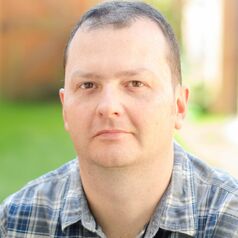
Paul Michael Gilmour
I lecture at the University of Portsmouth’s School of Criminology and Criminal Justice (SCCJ). Prior to this, I served for nearly 20 years in the UK police service, most recently as a detective specializing in criminal investigations. I am involved in a range of research and teaching activities within economic crime, organised crime and policing.
My research focuses on issues of secrecy, offshore finance, and beneficial ownership transparency. I am intrigued with understanding the characteristics of offshore jurisdictions, the methods used to conceal beneficial ownership, and how governments and regulatory bodies attempt to control illicit offshore activities.
I am also interested in the financial regulation of crypto assets (such as, non-fungible tokens (NFTs) and cryptocurrencies); and the role of blockchain technology in registers of beneficial ownership, smart contracts, the metaverse, and decentralized finance (DeFi).
Less ![]()
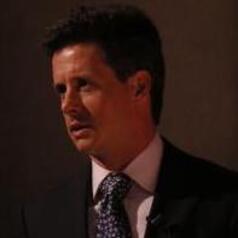
Paul S. Atkins
Professor of Japanese, University of Washington
Paul S. Atkins is professor of Japanese in the Department of Asian Languages and Literature at the University of Washington, Seattle. His specialization is the literature, drama, and culture of medieval Japan.
Publications include the monographs Teika: The Life and Works of a Medieval Japanese Poet (University of Hawai’i Press, 2017) and Revealed Identity: The Noh Plays of Komparu Zenchiku (Center of Japanese Studies, University of Michigan, 2006) as well as peer-reviewed articles in journals including Monumenta Nipponica, Harvard Journal of Asiatic Studies, Journal of Asian Studies, Asian Theatre Journal, Journal of the American Oriental Society, and Japanese Language and Literature.
Professor Atkins was awarded the Kyoko Selden Memorial Translation Prize by Cornell University in 2021 and the William F. Sibley Memorial Translation Prize by the University of Chicago in 2011. He holds a Ph.D. in Japanese from Stanford University, studied at the University of Tokyo as a Fulbright dissertation fellow, and has held visiting faculty or research appointments at Kyoto Prefectural University, Nanzan University, Hōsei University, and Keiō University.
Less ![]()

Paul Stephen Adey
Rap Lyricist and Lecturer in Music Performance at Confetti Institute of Creative Technology, Nottingham Trent University
My critical-creative doctoral thesis, ''Nothing New Under the Sun': Literary Allusion, Intertextuality, and Lyrical Performative Quotation in Hip Hop Lyricism' explores how several rap artists from key eras in hip hop culture have utilised the techniques of literary allusion and intertextuality to impact their work in multiple meaningful ways. The creative component of the thesis (comprising a trilogy of rap LPs) provides a template/framework for future research in these areas through a practice-based, creative-led focus on the use of intertextuality in rap to identify and artistically illustrate the sophisticated uses of these techniques. Case studies included in this thesis focus on: Nas’s use of creative patrilineage (Higgins, 2007) to form modes of lyrical transcendence, epistolic legacy, and religious and thematic allusion (Ch. 1); Kendrick Lamar’s engagement with intertextuality to explore loss and trauma, and his revision of the postmortem sampling trope (Williams, 2013) (Ch. 2); and the technique of lyrical performative quotation through the lyrics of J.I.D., Kemba, Saba, Earl Sweatshirt, and MIKE and Navy Blue (Ch. 3).
Whilst intertextuality in hip hop has been defined in recent years (e.g., Williams, 2013; Diallo, 2015), academic research into how it (alongside literary allusion specifically, and the innovative technique of lyrical performative quotation) is employed artistically to translate modes of vulnerability such as trauma and grief and affect methods of personal and communal catharsis is limited. Using my own understandings and experiences of loss and trauma, I develop upon this research through a critically-informed and deeply personal artistic reflection into universal aspects of the male experience, men’s mental health, and masculinity in contemporary society.
‘NOTHING NEW UNDER THE SUN’: LITERARY ALLUSION, INTERTEXTUALITY, AND LYRICAL PERFORMATIVE QUOTATION IN HIP HOP LYRICISM: https://irep.ntu.ac.uk/id/eprint/49298/1/Paul%20Adey%202023.pdf
Less ![]()

Paul TJ French
PhD Candidate in Criminal Law & Criminology; Lecturer of Criminology, University of Chester, Liverpool John Moores University
I am currently a School of Law research student at LJMU investigating Moral Panic of Islamist Terrorism, Conspiracy theories, and the impact of support for British values.
A former lecturer at The Brilliant Club Scholars Programme
Current Lecturer of Criminology at the University of Chester
Fellow of the Higher Education Academy (FHEA)
Modules I teach:
-Offender Management
-Theories of Crime & Justice
-State Crime & Resistance
-International (In)Justices & the Death Penalty
-Undergraduate dissertation supervisor
Linkedin
https://www.linkedin.com/in/paul-french-msc-fhea-782927a5/
Less ![]()
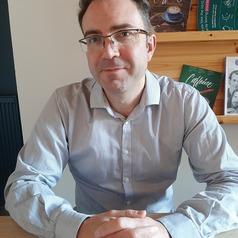
Paul Vincent Smith
Lecturer in Education, Manchester Institute of Education, University of Manchester
I am a Lecturer in Education at the Manchester Institute of Education, University of Manchester. I am a three-time graduate student of the University of Manchester, earning an MA, PhD, and most recently a PG Cert in HE. I also hold a Senior Fellowship of the Higher Education Academy. I research and publish most frequently in the general domain of higher education, with emphasis on assessment and feedback, theories of learning, academic literacies, and the experience of religious students in universities.
Less ![]()
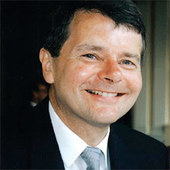
Paul Webster Hare
Master Lecturer and Interim Director of Latin American Studies, Boston University
Less ![]()
- Market Data



















